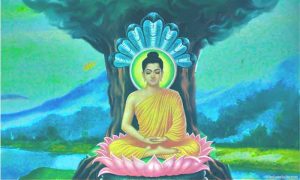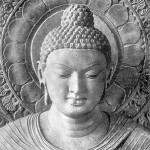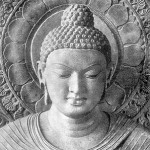“Wisdom of Non-self: What is Anatta?”
Discussion led by Dave Mermelstein, Vice President of The Buddhist Sangha of Bucks County
Below is what may be the most important part of Monday night’s discussion about Not Self— that it’s more skillful to fully understand the question better than any possible answer:
“…The Buddha would answer only questions that provided an answer to our primal question and helped put an end to suffering and stress. Questions that would get in the way, he would put aside, because the problem of stress and suffering is urgent. Usually when we hear the teaching on not-self, we thi…nk that it’s an answer to questions like these: “Do I have a self? What am I? Do I exist? Do I not exist?” However, the Buddha listed all of these as unskillful questions. Once, when he was asked point-blank, “Is there a self? Is there no self?” he refused to answer. He said that these questions would get in the way of finding true happiness. So obviously the teaching on not-self was not meant to answer these questions. To understand it, we have to find out which questions it was meant to answer.
As the Buddha said, he taught two categorical teachings: two teachings that were true across the board and without exceptions. These two teachings form the framework for everything else he taught. One was the difference between skillful and unskillful action: actions that lead to long-term happiness, and those that lead to long-term suffering. The other was the list of the four noble truths: the truth of suffering, the cause of suffering, the end of suffering, and the path to the end of suffering.
If you want to put an end to suffering and stress, these two categorical teachings carry duties or imperatives. In terms of the first teaching, you want to avoid unskillful action and give rise to skillful action. In terms of the second, the four truths are categories for framing your experience, with each category carrying a specific duty you have to master as a skill. You need to know which of the truths you’re encountering so that you can deal with that truth in the right way. So- Suffering must be comprehended, the cause of suffering must be abandoned, the end of suffering must be realized, and the path to the end of suffering must be developed as a skill.
These are the ultimate skillful actions, which means that the mastery of the path is where the two sets of categorical teachings come together. The path begins with discernment—the factors of right view and right resolve—and discernment begins with this basic question about which actions are really skillful: “What, when I do it, will lead to long-term welfare and happiness?”
From Selves and Not Self, by Thanissaro Bhikkhu
To continue learning about this topic and more, we recommend visiting Access to Insight:





